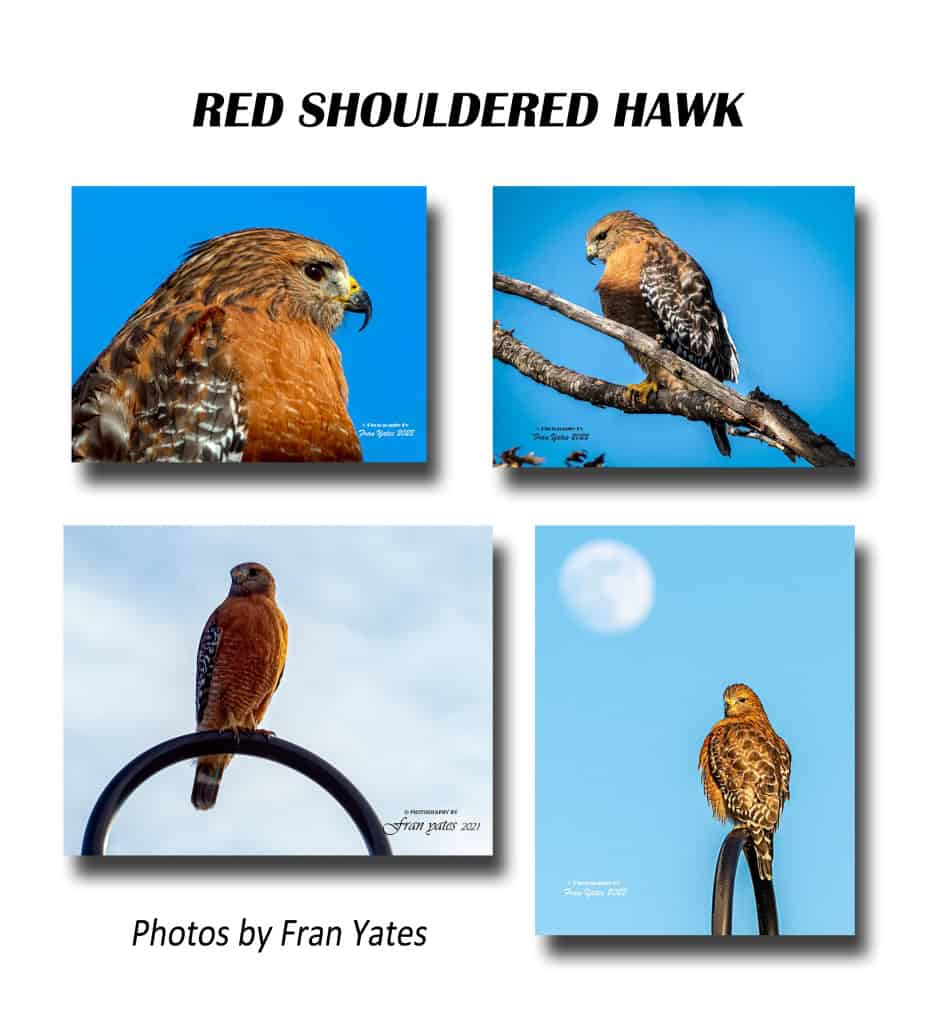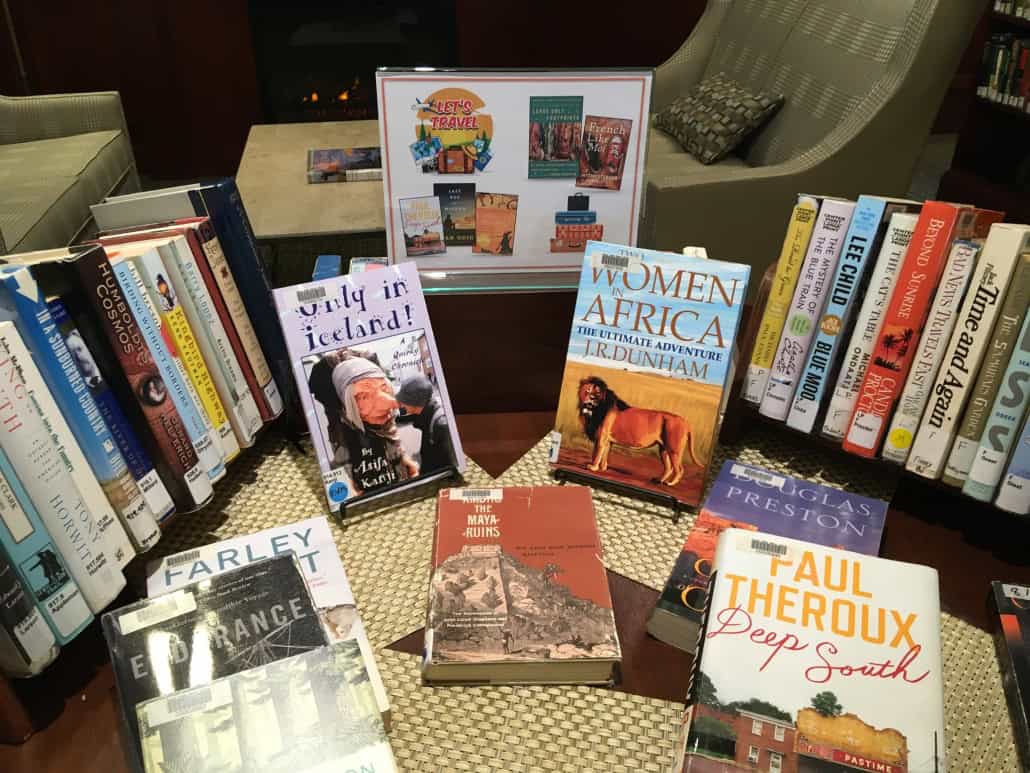
by Eleanor Lippman
He adopted us, my husband and me.
We found him loitering around our house in southern California so we started leaving a bowl of fresh water and some nibbles by the back door. This encouraged him to visit us more often.
He seemed rather feral, had no tags and no apparent home.
Being city dwellers, we knew nothing about cats or dogs as no one in our neighborhood growing up in the late 1950s, owned pets. Large families and small crowded houses did not make a good combination for furry companions.
Gradually, he allowed himself to be petted – carefully. Over time, he 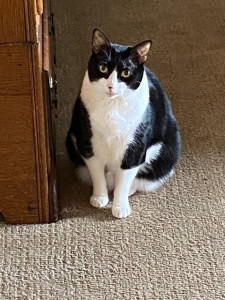 became a regular visitor in the morning as we prepared breakfast and dawdled over coffee. We’d hear him before we saw him, a mournful meowing, him crying out to us that he arrived and was hungry, probably lured by the aroma of bacon and eggs frying on the stove.
became a regular visitor in the morning as we prepared breakfast and dawdled over coffee. We’d hear him before we saw him, a mournful meowing, him crying out to us that he arrived and was hungry, probably lured by the aroma of bacon and eggs frying on the stove.
One winter, we awoke to the sound of pounding rain on the roof. Chilly, we stumbled out of bed and turned up the furnace to make the house comfortable. Soon the coffee was perking and the bacon was sizzling, but no sign of Cat. We ate breakfast in silence and wondered what feral cats did to avoid such bad weather. The rain began to let up and we peered out of the back door window hoping to catch sight of him. Nothing.
Then we became involved in the rituals of preparing to start our day. My husband in suit, shirt and tie, checked his briefcase and searched for an umbrella before pulling the car out of the garage to head for work. I watched as he stopped the car in the driveway and opened the car door. Then I could see what caught his attention. Under our neighbor’s car parked in their drive way, was Cat furiously licking away at his shoulder. I think we both realized at about the same time that Cat sought shelter from the downpour under the car, unaware that the car’s engine was slowly dripping oil onto his fur while he slept.
This called for immediate action on our part. We had to become the Cat Rescue Team. My husband called in sick and quickly changed into clothes more suitable to the task at hand.
We were able to coax Cat out from under the car. Luckily he trusted us and allowed himself to be covered with a bath towel and, for the first time, be brought into our house. It didn’t take long for us to realize that we couldn’t possibly remove the filthy oil from his fur by just rubbing with the towel. And we worried that by licking himself clean he would poison himself or become very sick. Only a bath using shampoo would clean him.
This was unknown territory for both of us. Neither of us knew that one didn’t bathe a cat. They took care of their own grooming using their very rough tongues. But, as they say, ignorance is bliss.
Cat didn’t put up any resistance as cold, hunger, and oil coating made him too weak to fight. We gently shampooed his fur and rinsed him in soothing warm water until we felt that he was clean. It was a shock to us to see him standing in the tub, soaking wet and several sizes smaller than usual. Did we shrink him in the wash?! In fact, he looked quite rat-like, just a bag of bones. We had no idea how much actual cat had been hiding under all of that fur!
We dried him as best we could, and before we could do anything more, he ran out of the bathroom with an amazing streak of energy.
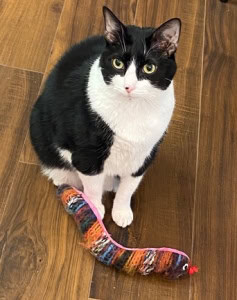
Later we found him sitting on our desk in the living room calming licking himself clean(er). He stayed there all day and all night, licking, licking and watching us warily. Attracted by the sizzling of bacon the next morning, he ambled into the kitchen, once again his old self, his regular size, his coat clean, and hungry for a real meal.
That’s when he officially became “Toki” our cat, the keeper of the house, the boss of things. And the training began – turning a feral cat into a much loved pet who didn’t scratch furniture, who came and went at will, and became one of the family. He learned to sit on our laps while we read, to rub against our leg when he needed to be petted, and to meow for attention.
I began pestering my friend at work about cats as she had two beautiful Siamese cats living with her. My education as a pet owner was increasing by leaps and bounds – but with a grain of salt. She related her most recent cat experience with great reluctance. It seems as if one of her cats had taken to sleeping on one of the cushioned chairs in her living room and also began using the chair as a claw sharpening device. Soon the seat of the chair was covered with cat fur and the back of the chair was scratched to the point where the upholstery stuffing was falling out.
Something had to be done. Her veterinarian suggested she use a spray designed to deter cats, to discourage them from scratching or leaping up on furniture. So my friend had her chair hauled off to be repaired and recovered and to be returned once again to be part of the living room decor. Before she brought the chair back into her house, she sprayed it all over with the recommended cat avoiding spray, confident the problem had been solved. The upholsterer delivered her newly covered chair well sprayed, collected his money and left. The pair of cats entered the living room curious and circled the chair, round and round. One cat leaped up on the seat probably expecting the usual resting spot. Instead, with terror in his eyes, he looked at my friend, turned his back on her and viciously attacked the back of the chair, clawing and scratching until it was totally destroyed once again. Time lapsed between delivery and destruction: probably two minutes.
Our Toki-Cat would never do anything like that. He never was interested in using furniture as a scratching post. He never slept on our bed or on our upholstered chairs. He didn’t leap up on the table while we were eating. His domain was ground level except when it was lap time, cuddling time.
The kitchen sink in our house had a window overlooking the back yard where I often kept on the window sill small potted plants to keep me company as I washed dishes or prepared meals. After a while, I realized that the window sill needed a bit of freshening up so I decided to repaint it. So one night after dinner was over and the kitchen cleaned up, I carefully repainted the window sill. Toki-cat left for the evening using his newly installed cat door and husband and I went to bed.
As I was filling the coffee pot with water in the morning, I saw it. The equivalent of my friend’s chair. The evidence of cat superiority. Embedded in the newly painted window sill were paw prints from one end of the window sill to the other. Someone had been exploring during the night.
That’s when I realized that there were two Toki-cats in my house. The Toki-cat on best behavior when we were in the room, and the real Toki-cat, the explorer, the bird and mouse hunter, the tamed tiger who lived here when we were not around. The dual Toki-Cat, my husband, and I eventually just accepted things as they were. Who were we to interfere with Mother Nature?
Toki-cat uses up one of his nine lives
For a long time, I drove one of the early Volkswagen Beetles, the tiny car (compared to what Detroit was selling at the time), bright red, innovative in style and design, with its tiny engine in the trunk and the trunk storage space under the hood. It was usually parked in our driveway or in front of the house, leaving the garage to be the home of our other car.
One morning, my husband decided to drive the Volkswagen, and as he approached the car, he saw Toki-Cat asleep on the roof. Opening the door startled and woke up Toki, and due to the design of the car, he started sliding forward, down past the windshield and down past the hood of the car. Husband drove off and as he slowly maneuvered his way out of the neighborhood, pedestrians would point at him and laugh. Before driving onto the main thoroughfare, he pulled over and stopped the car thinking perhaps he had a flat tire and it would be wise to check. Much to his surprise, pinned between the front bumper of the car and the fancy grillwork, was Toki-cat. Apparently as he slid forward from his sleeping spot on top of the car, he got caught and was unable to free himself from his spot between the front bumper and the sloping front of the car. Caught, he endured the ride without uttering a sound. Freed from his confinement by my husband, Toki-cat was safely brought back home and husband wondered for the rest of his life what he would have done if he arrived at work in a car with a large black and white cat trapped in the front grillwork.
(Toki is performed by Gabby Rugg who lives with Carol and David)

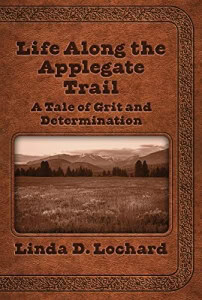
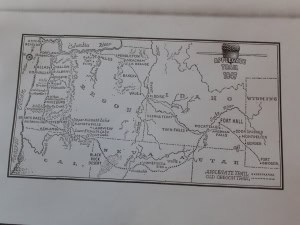



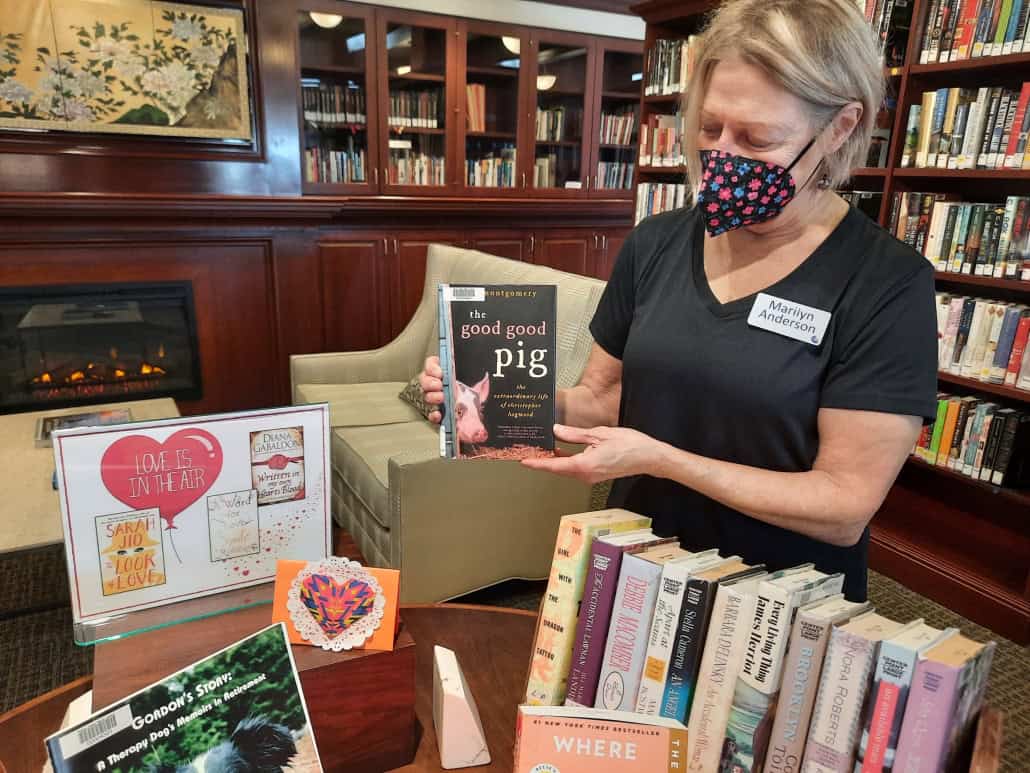

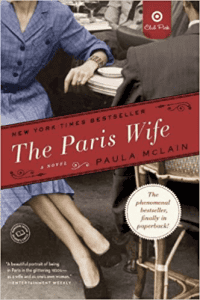 The Paris Wife, by Paula McClain
The Paris Wife, by Paula McClain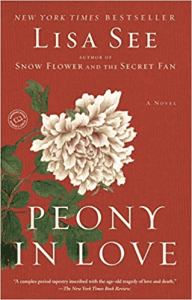 Peony in Love, by Lisa See
Peony in Love, by Lisa See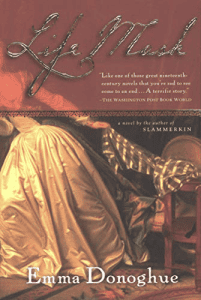 Life Mask, by Emma Donoghue
Life Mask, by Emma Donoghue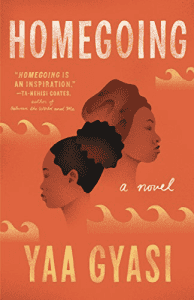 Homegoing, by Y’a’a Gyasi
Homegoing, by Y’a’a Gyasi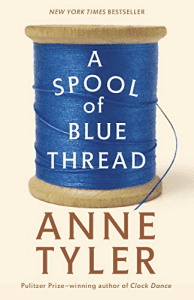 Spool of Blue Thread, by Anne Tyler
Spool of Blue Thread, by Anne Tyler The Mountains Sing, by Nguyen Phan Que Mai
The Mountains Sing, by Nguyen Phan Que Mai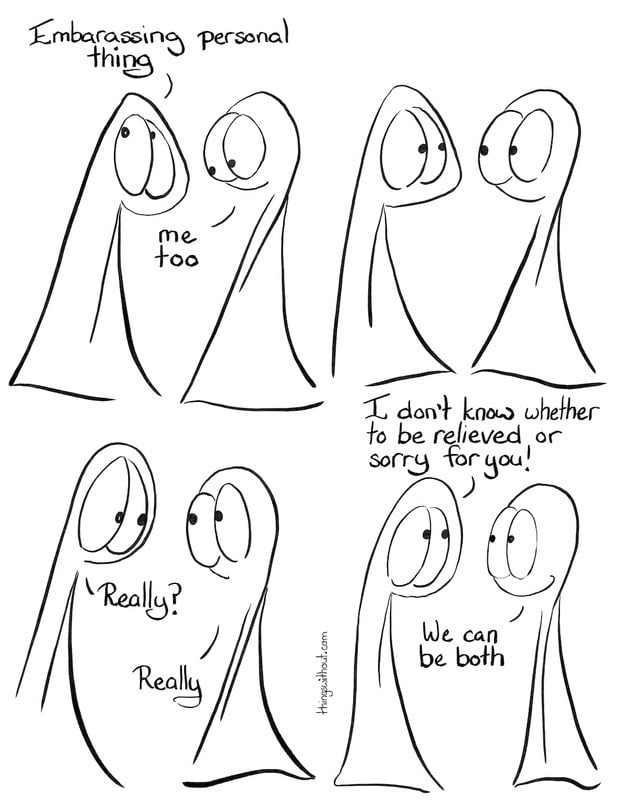


 became a regular visitor in the morning as we prepared breakfast and dawdled over coffee. We’d hear him before we saw him, a mournful meowing, him crying out to us that he arrived and was hungry, probably lured by the aroma of bacon and eggs frying on the stove.
became a regular visitor in the morning as we prepared breakfast and dawdled over coffee. We’d hear him before we saw him, a mournful meowing, him crying out to us that he arrived and was hungry, probably lured by the aroma of bacon and eggs frying on the stove.
